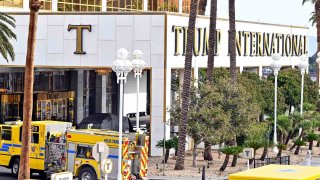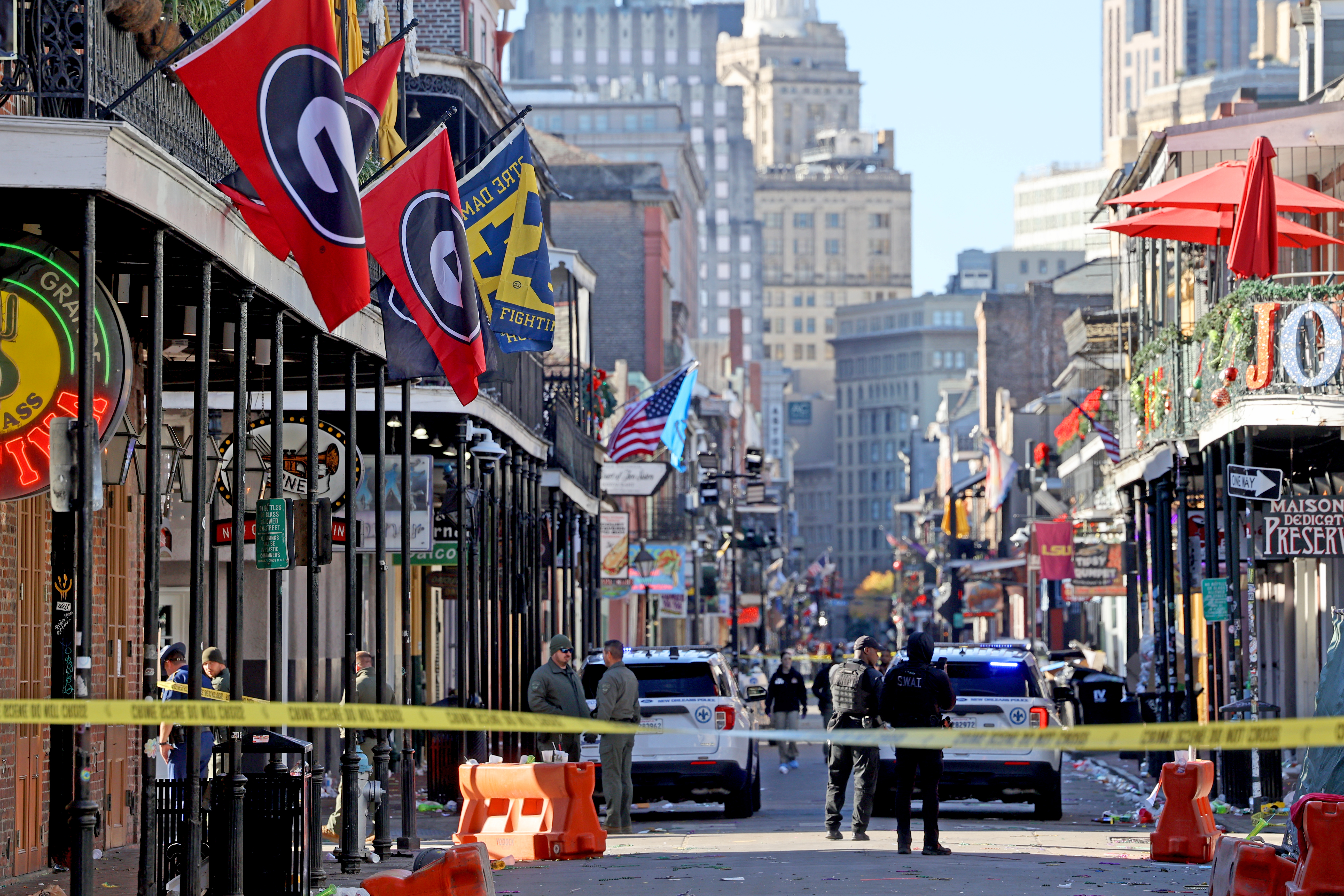
A Cybertruck covered with a tarp is seen parked in the valet area at the Trump International Hotel on January 1, 2025, in Las Vegas, Nevada.
The highly decorated soldier who exploded a Tesla Cybertruck outside the Trump hotel in Las Vegas used generative AI including ChatGPT to help plan the attack, Las Vegas police said Tuesday.
Nearly a week after 37-year-old Matthew Livelsberger fatally shot himself, officials said according to writings, he didn't intend to kill anyone else.
Watch NBC6 free wherever you are
An investigation of Livelsberger’s searches through ChatGPT indicate he was looking for information on explosive targets, the speed at which certain rounds of ammunition would travel and whether fireworks were legal in Arizona.
Kevin McMahill, sheriff of the Las Vegas Metropolitan Police Department, called the use of generative AI a “game-changer” and said the department was sharing information with other law enforcement agencies.
Get local news you need to know to start your day with NBC 6's News Headlines newsletter.
“This is the first incident that I’m aware of on U.S. soil where ChatGPT is utilized to help an individual build a particular device," he said. “It’s a concerning moment.”
In an emailed statement, OpenAI said it was committed to seeing its tools used “responsibly" and that they're designed to refuse harmful instructions.
“In this case, ChatGPT responded with information already publicly available on the internet and provided warnings against harmful or illegal activities. We’re working with law enforcement to support their investigation,” the emailed statement said.
Launched in 2022, ChatGPT is part of a broader set of technologies developed by the San Francisco-based startup OpenAI. Unlike previous iterations of so-called “large language models,” the ChatGPT tool is available for free to anyone with an internet connection and designed to be more user-friendly.
During a roughly half-hour-long news conference, Las Vegas police and federal law enforcement officials unveiled new details about the New Year's Day explosion.
Among the specifics law enforcement disclosed: Livelsberger stopped during the drive to Las Vegas to pour racing-grade fuel into the Cybertruck, which then dripped the substance. The vehicle was loaded with 60 pounds (27 kilograms) of pyrotechnic material as well as 70 pounds (32 kilograms) of birdshot but officials are still uncertain exactly what detonated the explosion. They said Tuesday it could have been the flash from the firearm that Livelsberger used to fatally shoot himself.
Authorities also said they uncovered a six-page document that they have not yet released because they're working with Defense Department officials since some of the material could be classified. They added that they still have to review contents on a laptop, mobile phone and smartwatch.
Among the items released was a journal Livelsberger kept titled “surveillance” or “surveil” log. It showed that he believed he was being tracked by law enforcement, but he had no criminal record and was not on the police department's or FBI's “radar,” the sheriff said Tuesday.
The log showed that he considered carrying out his plans in Arizona at the Grand Canyon's glass skywalk, a tourist attraction on tribal land that towers high above the canyon floor. Assistant Sheriff Dori Koren said police don't know why he changed his plans. The writings also showed he worried he would be labeled a terrorist and that people would think he intended to kill others besides himself, officials said.
Once stopped outside the hotel, video showed a flash in the vehicle that they said they believed was from the muzzle of the firearm Livelsberger used to shoot himself. Soon after that flash, video showed fire engulfing the truck's cabin and even escaping the seam of the door, the result of considerable fuel vapor, officials said. An explosion followed.
Livelsberger, an Army Green Beret who deployed twice to Afghanistan and lived in Colorado Springs, Colorado, left notes saying the explosion was a stunt meant to be a “ wake up call ” for the nation's troubles, officials said last week.
He left cellphone notes saying he needed to “cleanse” his mind “of the brothers I’ve lost and relieve myself of the burden of the lives I took."
The explosion caused minor injuries to seven people but virtually no damage to the Trump International Hotel. Authorities said that Livelsberger acted alone.
Livelsberger’s letters touched on political grievances, societal problems and domestic and international issues, including the war in Ukraine. He wrote that the U.S. was “terminally ill and headed toward collapse.”
Investigators had been trying to determine if Livelsberger wanted to make a political point, given the Tesla and the hotel bearing the president-elect’s name.
Livelsberger harbored no ill will toward President-elect Donald Trump, law enforcement officials said. In one of the notes he left, he said the country needed to “rally around” him and Tesla CEO Elon Musk.




